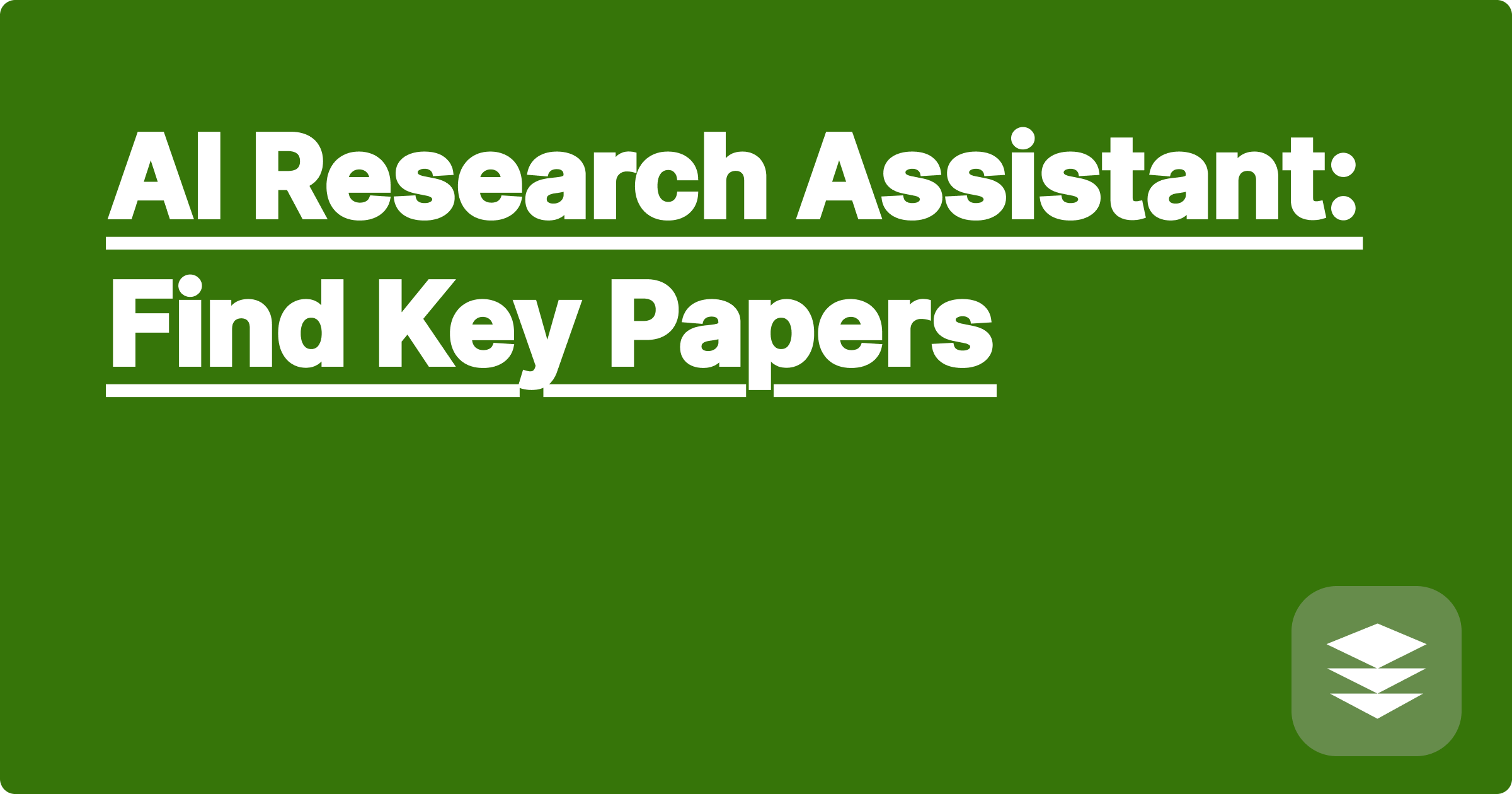
The sheer volume of research published daily in STEM fields can feel overwhelming, like trying to drink from a firehose. For students and researchers alike, finding the key papers relevant to your specific area of study can be a time-consuming and often frustrating process. Sifting through countless abstracts, downloading PDFs, and then actually reading the material can quickly consume precious hours that could be spent on experiments, analysis, or even, dare we say, a much-needed break. But what if there was a way to streamline this entire process, allowing you to quickly identify and digest the most important research? Enter the AI Research Assistant.
This is where the power of artificial intelligence comes into play, offering a game-changing solution for STEM students and researchers. AI-powered tools can drastically reduce the time spent on literature reviews, enabling you to focus on the actual work of science and engineering. By leveraging these tools effectively, you can not only boost your research productivity but also gain a deeper understanding of the current state of your field. This blog post will explore how AI research assistants can revolutionize your workflow, providing practical strategies and real-world examples to help you unlock their full potential.
The traditional approach to literature review involves manual searches on databases like PubMed, Web of Science, or IEEE Xplore. You type in keywords, scroll through pages of results, and often end up with a mix of relevant and irrelevant papers. Then comes the tedious process of downloading, reading, and summarizing each potentially useful paper. This can take days, even weeks, especially for complex research topics. Furthermore, it can be difficult to keep track of all the information you’ve gathered, leading to duplicated efforts and missed connections between different studies. This inefficient process not only slows down your research but also increases the risk of overlooking crucial papers that could significantly impact your work. Imagine the frustration of spending weeks on an experiment only to discover a paper that already addressed your research question.
AI research assistants, powered by advanced natural language processing and machine learning algorithms, offer a smarter approach to literature review. Tools like GPAI (a hypothetical AI learning platform), Semantic Scholar, and Elicit can analyze vast amounts of research data, identify key papers relevant to your specific query, and even summarize their findings for you. These platforms can also help you discover connections between different papers, identify influential researchers in your field, and track the evolution of research trends over time. By automating the tedious aspects of literature review, AI frees up your time for more critical tasks, such as designing experiments, analyzing data, and writing your own publications.
Let’s walk through an example using GPAI. First, define your research question clearly. For instance, let's say you're researching "the impact of climate change on coral reef ecosystems." Input this query into GPAI's research assistant. The platform will then analyze millions of research papers, identifying those most relevant to your topic. GPAI can also filter results by publication date, journal, and other criteria. Next, GPAI can generate concise summaries of each selected paper, highlighting key findings and methodologies. You can then quickly assess the relevance of each paper without having to read the entire document. Finally, GPAI can create a visual network of the selected papers, showing connections between different studies and highlighting influential researchers in the field.
Consider a biology student researching the efficacy of different cancer treatments. Using an AI research assistant, they can quickly identify clinical trials, meta-analyses, and other relevant studies. The AI can also extract key data points, such as treatment success rates and side effects, allowing the student to compare different approaches efficiently. In another example, a physics student investigating the properties of dark matter could use an AI tool like Wolfram Alpha to access relevant equations, datasets, and research papers. This eliminates the need to manually search multiple databases and allows the student to focus on the theoretical aspects of their research.
To maximize the benefits of AI research assistants, start by clearly defining your research question. The more specific your query, the more relevant the results will be. Experiment with different AI tools and platforms to find the one that best suits your needs. Remember that AI is a tool, not a replacement for critical thinking. Always evaluate the information provided by the AI and cross-reference it with other sources. Integrate AI research assistants into your workflow early on, making it a habit to use them for literature reviews and staying updated on the latest research in your field. Consider combining AI tools with established time management techniques like the Pomodoro method to further enhance your productivity. Finally, remember to take breaks and prioritize your mental well-being. AI can help reduce academic stress by streamlining your workflow, but it's essential to maintain a healthy work-life balance.
Embrace the power of AI research assistants to enhance your academic journey. By incorporating these tools into your workflow, you can not only save valuable time and effort but also gain a deeper understanding of your field. Start exploring the different AI platforms available and discover how they can transform your research process. Don't be afraid to experiment and find the strategies that work best for you. The future of STEM research is here, and AI is playing a key role in shaping it. Take advantage of these powerful tools and unlock your full academic potential.
AI Study Planner: Ace Your STEM Exams
AI for Calculus: Solve Any Problem
AI Lab Assistant: Boost Your Research
AI for Physics: Master Complex Concepts
AI Coding Tutor: Debug Like a Pro
AI for Chemistry: Analyze Data Faster
AI Exam Prep: Conquer Your Finals
AI Math Solver: Unlock Math Mastery